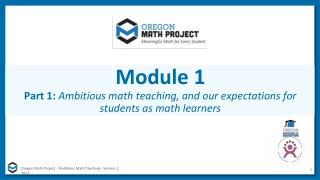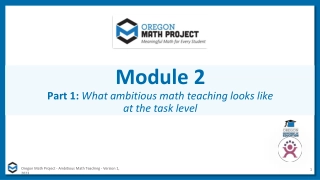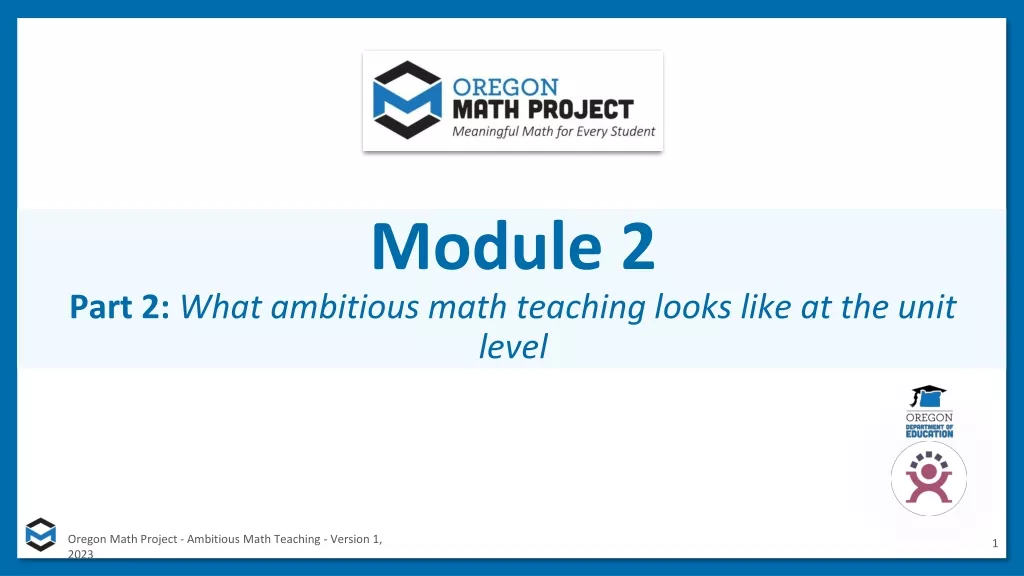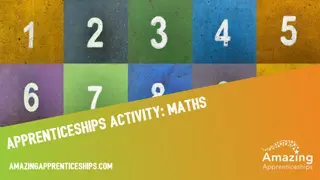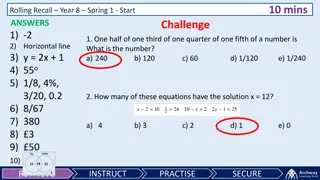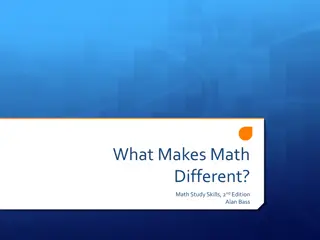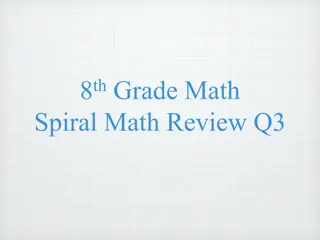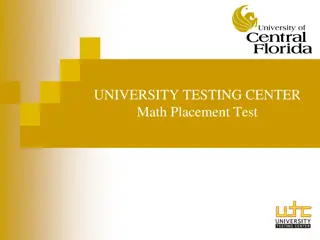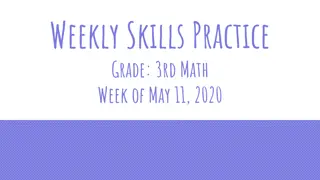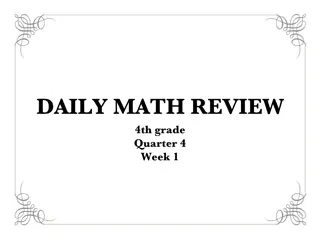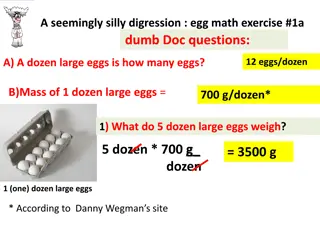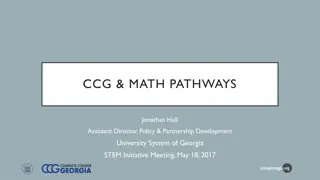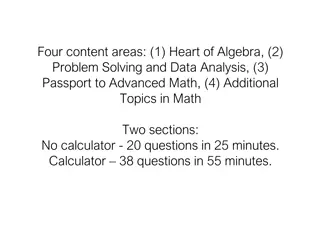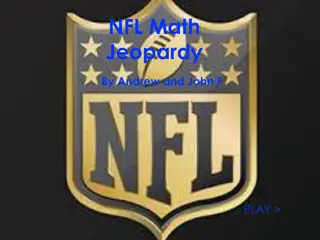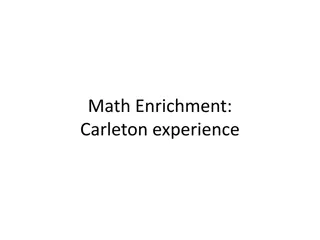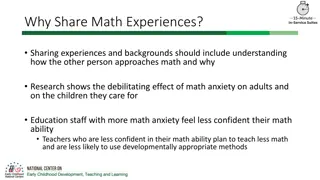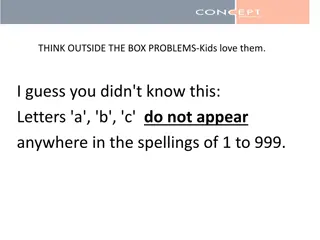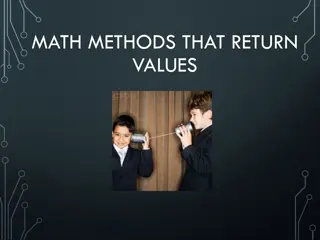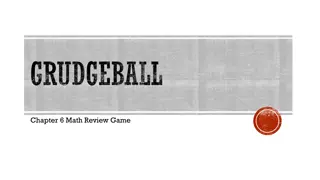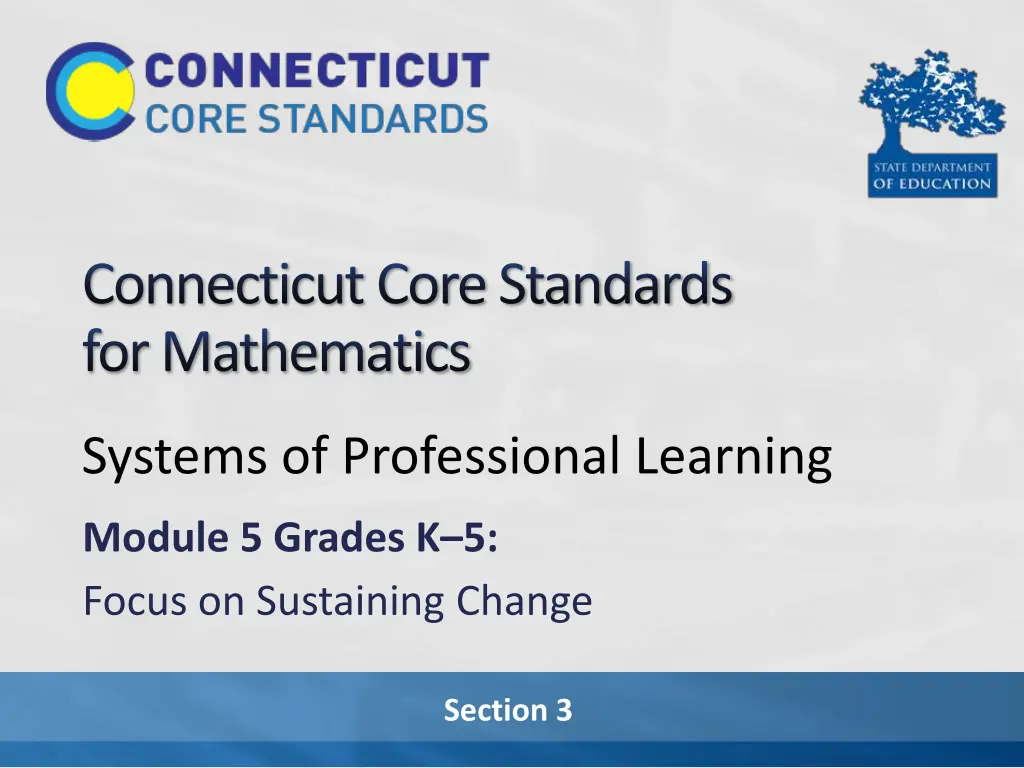
Empowering Mathematics Coaches: Role and Strategies for Professional Growth
Explore the vital role of mathematics coaches in sustaining change and supporting teachers through meaningful reflection. Learn about the coach's role as a partner, advisor, and questioner, along with tips for crafting purposeful questions to stimulate inquiry and higher-order thinking skills. Engage in coaching conversations to enhance lesson design and implementation effectively.
Download Presentation

Please find below an Image/Link to download the presentation.
The content on the website is provided AS IS for your information and personal use only. It may not be sold, licensed, or shared on other websites without obtaining consent from the author. If you encounter any issues during the download, it is possible that the publisher has removed the file from their server.
You are allowed to download the files provided on this website for personal or commercial use, subject to the condition that they are used lawfully. All files are the property of their respective owners.
The content on the website is provided AS IS for your information and personal use only. It may not be sold, licensed, or shared on other websites without obtaining consent from the author.
E N D
Presentation Transcript
Connecticut Core Standards for Mathematics Systems of Professional Learning Module 5 Grades K 5: Focus on Sustaining Change Section 3
Supporting Meaningful Reflection Section 3 Page 16
The Role of the Coach Advocate vs. Evaluator Being a cheerleader celebrating gains Effectively listening to and paraphrasing worries/concerns Empowering teachers to try new things Page 16 Section 3 33
Coachs Role Partner/Collaborator vs. Expert Peer/Co-Learner Asking questions vs. giving answers Section 3 34
Coachs Role Advisor vs. Director Providing suggestions for refinement of a lesson or classroom practice Keeping the focus on student learning Section 3 35
Purposeful Questions A coach asks questions to: Stimulate reflection Promote a spirit of inquiry (expand thinking and possibilities) Section 3 36
Think about the wording of these questions: What are some connections between this learning target and what your students have learned before? What formative assessment strategies could you use to see if students are understanding the concept? How did the lesson go compared to how you had planned it? Page 17 Section 3 37
Tips for Well-crafted Questions: Use plurals in your questions Embed tentative language ( might , some ) Ask open-ended questions Use verbs to elicit higher-order thinking ( compare , predict , evaluate ) Presume positive intentions in your questions Use an approachable voice to signal inquiry vs. interrogation Pages 17-18 Bay-Williams, J., McGatha, M., 2014) Section 3 38
Engage in a Coaching Conversation: The coach will take ten minutes to look over the coachee s lesson design and consider a couple of questions that could be asked about the lesson design and the implementation of the lesson. When forming questions, consider: The EQuIP Rubric (copies on table) UDL Principles (page 19) Section 3 39
Engage in a Coaching Conversation: Ask your questions of the coachee and listen to the responses provided. Switch roles. Section 3 40
Reflect Think back to the tips for well-crafted questions as you evaluate the quality of your questions. What are some challenges you had? Forming questions is an art again, the purpose is to move the coachee forward in his or her thinking. Page 20 Section 3 41
Data Collection What lenses could be used for data collection in a classroom observation as a Core Standards Coach? Page 21 Section 3 42
Observe the lesson Page 22 Teaching Channel video: Reasoning About Multiplication & Division https://www.teachingchannel.org/videos/multiplication-division-in-the-core Section 3 43
Classroom Observations Feedback With your tablemates and based on your observation lens record: One commendation (a celebration) One question that would engage the teacher in critical reflection One suggestion to move the teacher s thinking forward Page 23 Section 3 44
Meeting Teachers Needs Page 8 Section 3 45

